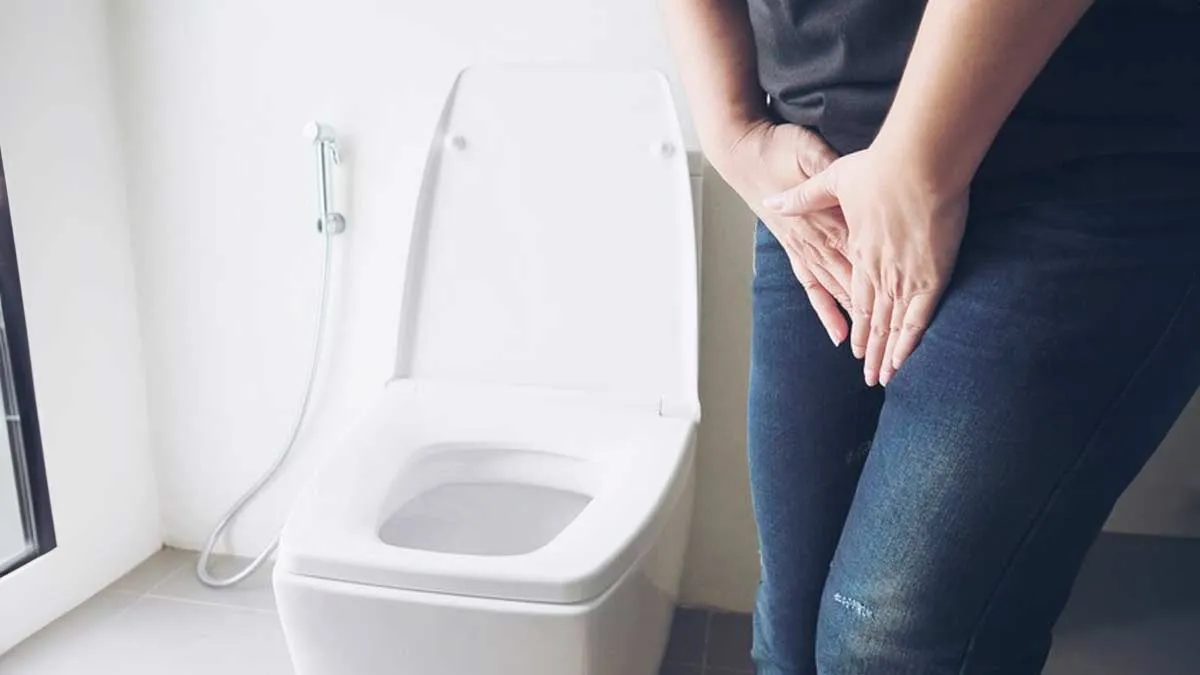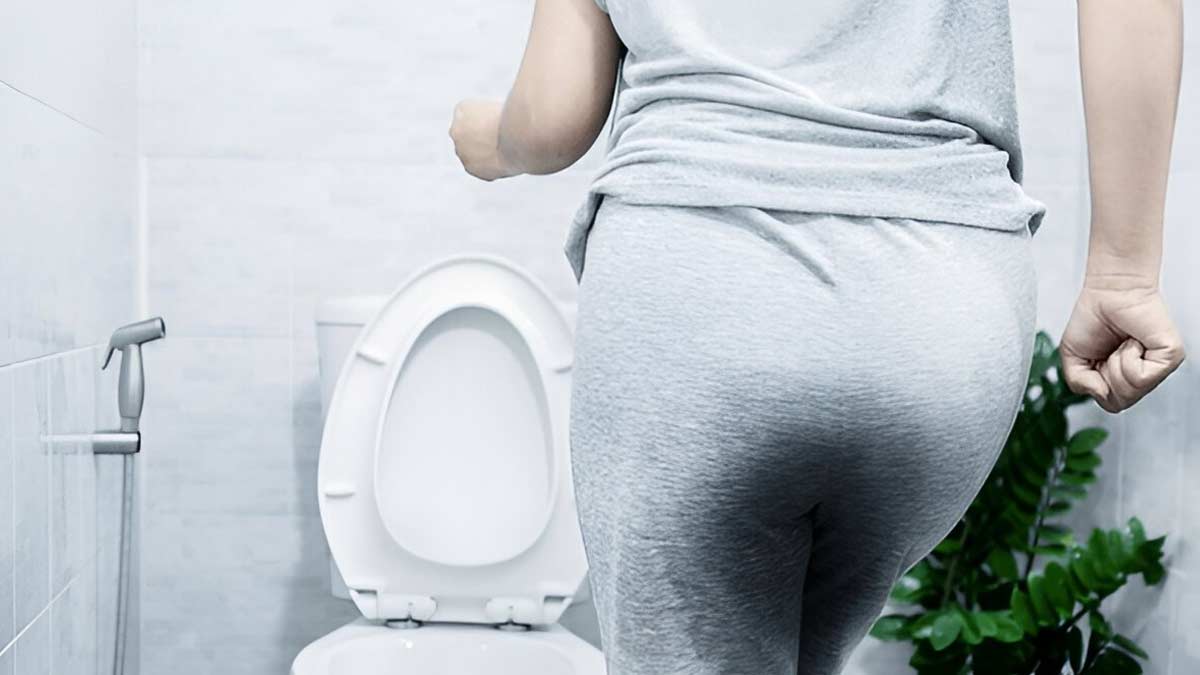
Have you ever noticed that the moment you step through your front door, you suddenly feel an overwhelming urge to use the bathroom? You might have been fine moments before, but as soon as you enter your home, the urgency seems almost impossible to ignore. If this sounds familiar, you're not alone. This phenomenon is called latchkey incontinence, and it’s more common than you might think.
Table of Content:-
Latchkey incontinence occurs when your brain equates coming home with bladder relief, which makes you suddenly and often urgently need to go. We spoke to our expert Dr Malav Modi Urologist, Wockhardt Hospitals, Mumbai Central, who explained this condition, its causes, and management measures.
Why Does This Happen?

Latchkey incontinence is a conditioned reflex where your bladder associates certain environmental cues with the need for relief. "This occurs when the brain and bladder form a habitual response to specific triggers, such as hearing your keys jingle, unlocking your door, or stepping into your home. Over time, your body learns to expect bathroom access at these moments, triggering the urge to urinate even if your bladder isn’t full," explained Dr Modi.
Is Latchkey Incontinence Common?
Yes, this is a fairly regular response, especially in an Overactive Bladder (OAB) or anxiety. OAB syndrome is a long-term medical condition that significantly impacts the quality of life for many individuals. With an estimated prevalence of 16.5%, OAB disrupts daily activities and social interactions, including work, travel, physical exercise, sleep, and sexual function, according to a2018 study.
"Although urgency can happen to anyone occasionally, people with sensitive bladders experience it more frequently and with greater intensity. Stress and anxiety can also heighten this response, making the urgency stronger," added Dr Modi.
Also Read: Is It Normal To Pee Every 2 Hours? Doctor Shares How Many Hours Gap Between Urinations Is Normal
Should You Be Concerned?

Although latchkey incontinence is usually benign, sometimes it may be a sign of an underlying medical condition if the urge is uncontrollable or leads to leakage. The response can be managed through bladder training and mindfulness strategies by strengthening the control over the urgency.
"However, if the condition worsens or persists, a consultation with the healthcare provider is recommended. A checkup from the doctor can establish whether the cause is an infection, bladder dysfunction, or another medical condition that results in the symptoms. If the symptoms become bothersome, getting medical advice guarantees proper guidance and treatment," advised Dr Modi.
Also Read: Urologist Insights: How To Strengthen Bladder Control In Older Adults
How To Manage Latchkey Incontinence
While this condition can be frustrating, several strategies can help retrain your bladder and reduce urgency upon arriving home. Dr Modi suggests the following techniques:
1. Pelvic Floor Exercises

Another way to manage latchkey incontinence is by engaging in pelvic floor exercises. Strengthening pelvic floor muscles through exercises like Kegels can improve bladder control and reduce sudden urges.
2. Bladder Training
You should practice bladder training, which involves gradually increasing the time between urination urges. When you feel the urge as you approach home, try waiting a few extra minutes before using the restroom. Over time, this can help break the conditioned response.
3. Mindfulness and Breathing Techniques
Deep breathing exercises and mindfulness techniques can help manage anxiety-driven bladder responses. Practising slow, controlled breathing when you approach your home can reduce the sense of urgency.
4. Distraction Techniques
Engaging in a short task, such as checking the mail or taking a few sips of water before heading to the bathroom, can help break the habitual response and retrain your brain.
5. Hydration and Diet Management
Certain foods and beverages, like caffeine, alcohol, and acidic foods, can irritate the bladder and worsen symptoms. Staying hydrated and avoiding these triggers can improve bladder health.
[Disclaimer: This article contains information provided by an expert and is for informational purposes only. Hence, we advise you to consult your professional if you are dealing with any health issue to avoid complications.]
Also watch this video
How we keep this article up to date:
We work with experts and keep a close eye on the latest in health and wellness. Whenever there is a new research or helpful information, we update our articles with accurate and useful advice.
Current Version
